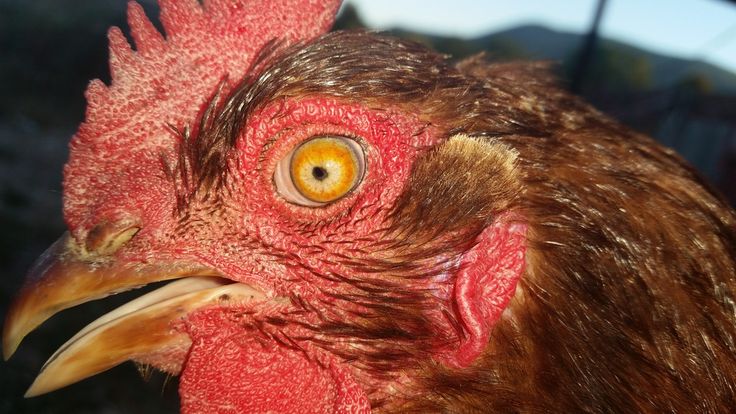Addressing common diseases and health issues in African poultry layers is crucial for maintaining their overall health, productivity, and profitability. Here are some common diseases and health issues in poultry layers in Africa.
- Newcastle Disease: Newcastle disease is a highly contagious viral disease that affects poultry, causing respiratory, nervous, and digestive system issues.

Vaccination is the most effective way to prevent Newcastle disease. Ensure that all poultry layers are vaccinated according to the recommended schedule.
- Avian Influenza: Avian influenza, or bird flu, is a viral disease that can cause severe illness and high mortality rates in poultry. Strict biosecurity measures, including controlling access to farms, limiting contact with wild birds, and proper disposal of infected carcasses, are essential to prevent the spread of avian influenza. Vaccination may also be recommended in high-risk areas.
- Infectious Bronchitis: Infectious bronchitis is a respiratory disease caused by a coronavirus, leading to respiratory distress and decreased egg production.

Vaccination is essential to prevent and control infectious bronchitis. Consult with a veterinarian to determine the appropriate vaccine strain and vaccination schedule for your poultry layers.
- Coccidiosis: Coccidiosis is a parasitic disease caused by protozoa that affects the intestinal tract of poultry. It leads to reduced growth, poor feed conversion, and increased mortality. Proper hygiene and sanitation, including regular cleaning and disinfection of housing facilities, are crucial in preventing coccidiosis. Additionally, the use of coccidiostats or anticoccidial drugs in feed can help control the disease.

- Marek’s Disease: Marek’s disease is a viral disease that affects poultry, primarily causing tumors in nerves, internal organs, and muscles. Vaccination is the primary method of preventing Marek’s disease. Ensure that poultry layers are vaccinated at the appropriate age, usually within the first week of life.

- Fowl Pox: Fowl pox is a viral disease characterized by the development of skin lesions on the comb, wattles, and other featherless areas of poultry. It can lead to decreased feed intake and egg production. Good biosecurity practices, including insect control measures, are essential to prevent the spread of fowl pox. Vaccination may also be considered in high-risk areas.

- Salmonellosis: Salmonellosis is a bacterial infection that can cause diarrhea, decreased egg production, and mortality in poultry. Proper hygiene and sanitation, including regular cleaning and disinfection of housing facilities and equipment, are crucial in preventing salmonellosis. Ensure that feed and water sources are not contaminated with Salmonella bacteria.
- Mycoplasma Gallisepticum: Mycoplasma gallisepticum is a bacterial respiratory disease that can cause respiratory distress, decreased egg production, and poor hatchability. Strict biosecurity measures, including quarantine and testing of new birds, are essential to prevent the introduction and spread of mycoplasma. Consult with a veterinarian for appropriate testing and treatment protocols.
- Ectoparasites: Ectoparasites, such as mites and lice, can cause irritation, feather loss, anemia, and reduced egg production in poultry layers. Regular monitoring, proper housing management, and the use of appropriate acaricides or insecticides are necessary to control ectoparasites. Ensure that housing facilities are thoroughly cleaned and treated to eliminate parasites.
- Nutritional Deficiencies: Nutritional deficiencies can lead to poor growth, reduced egg production, and general health issues in poultry layers. Ensure that the feed provided is nutritionally balanced and meets the specific requirements of layers at different stages of production. Consult with a poultry nutritionist to formulate appropriate feed rations.
- By visiting our company , we can help you to start by giving you all the necessary information you need to get started if not yet in the business. Please check our online shop, we have all the standard business proposals for different capacities at very a cheap price made by the best agricultural specialists as well as Standard design plans that are made by the best agricultural architects around the globe. please visit our online shop now using the links below to witness by yourself
- Design plans (FARM HOUSE DESIGNS – Kimd Construction & Farm Consultants)
- Business plans (BUSINESS PLANS & PROPOSALS – Kimd Construction & Farm Consultants)
- Welcome back from visiting our shop, hope you have placed your order for any of our products or you can place it after navigating more of our informative articles.
Regular monitoring, early detection, and prompt intervention are crucial in addressing diseases and health issues in poultry layers. Work closely with a qualified poultry veterinarian or animal health professional to develop a comprehensive health management plan tailored to the specific needs of your poultry farm.
You can also explore about tips for starting a successful Goat Farm.



